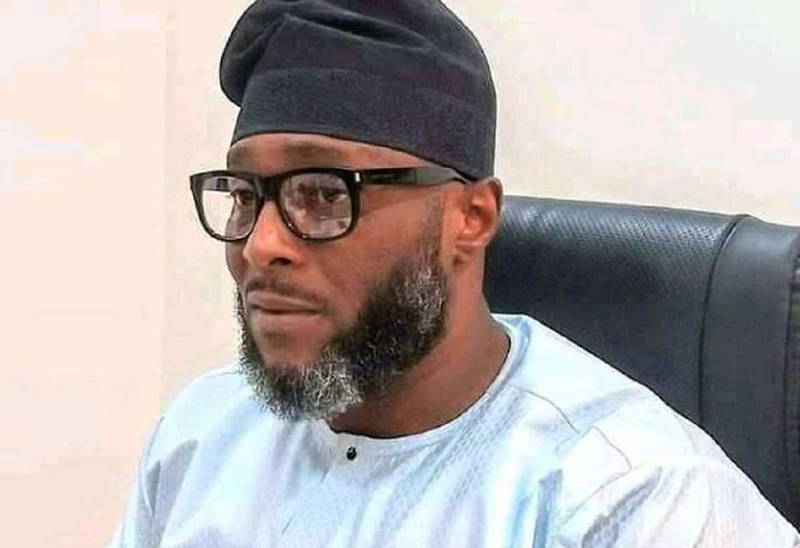By Joel Popoola
In tech terms, 2007 was a thousand years ago.
YouTube was a little over a year old. Instagram and Snapchat didn’t exist. TikTok wouldn’t go international for another decade.
That’s why it’s only sensible that we update out technology laws to reflect the Nigeria we live in now.
But this regulatory refresh must not come at the expense of our economic future.
This week has brought news that the National Information Technology Development Agency is apparently seeking to extend powers granted in 2007 to provide the Nigerian tech sector with advisory guidelines to a fully-fledged regulator with the powers to determine which businesses are allowed to operate.
Under the proposals, companies would also have to pay a 1% levy on their profits to NITDA. Companies failing to comply with the rules would risk jail time or minimum fines of 30 million naira.
In the aftermath of the government’s banning of both cryptocurrency and Twitter, insiders fear the move may have the effect of hindering innovation in Africa’s fastest growing tech ecosystem.
This must not be allowed to happen.
Tech is a sector which has defied the stagnant economy which has defined Nigeria in recent years. The internationally-renowned Financial Times recently branded Nigeria “Africa’s hottest start-up scene”. Of every five dollars invested in venture capital funding in Africa in 2020, one dollar went to Nigeria. In Flutterswitch and Intersave our nation is home to two of Africa’s four unicorns- companies valued at over $1billion. Investors poured $1.6billion into the Nigerian tech scene between 2016 and 2020.
It is this reason why tech’s role in the Nigerian economy has been called “the new oil”. And as the world adapts to a post-oil future, it’s something which is only going to become more and more critical. We must not intentionally destroy the new oil’s well.
As the Financial Times writes, the Nigerian government’s “byzantine structure, endemic corruption and penchant for free speech crackdowns” already inhibits innovation and discourages investment. Heavy handed regulation will only encourage investors and businesses to look elsewhere.
Fintech – digital banking – is one of the most significant divers of the Nigerian tech boom, and in a nation where 60 million people do not have a bank account and where 96% of transactions still take place using cash, the sector is only going to expand – democratising money as it does. No-one is seriously suggesting this area should be an unregulated free-for-all. Consumers need to know that they are investing in a reputable and regulated organisation and not a digital pyramid scheme.
Regulation which supports instead of strangling innovation is the key to prosperity. But the Nigerian tech sector has all-too-often found both the NDITA and other governmental bodies remote, inaccessible and even antagonistic.
This approach is symptomatic and symbolic of the digital divide between decision makers and ordinary Nigerians.
At the digital democracy campaign I lead we are trying to bridge that divide with technology.
We have developed a free app called Rate Your Leader to help elected officials better engage with both technology and the people who elect them.
The app allows direct person-to-person communication between verified voters and confirmed local leaders. As a result, Rate Your Leader allows the rapid raising of issues and concerns and the sharing of information, allowing communities to collaborate to make local areas better and helping politicians understand what matters most to the people who elect them. Rate Your Leader’s abuse-proof technology ensures that this communication is always courteous and civil.
Rate Your Leader also lets local people rate politicians for accessibility, transparency and honesty – building trust in both politicians and political institutions.
The Nigerian tech sector is alarmed by the prospect of a bill which seems to give a single agency the power to decide which businesses can operate and which technologies can come to market, and baffled with a bill which seems to entirely contradict the Nigerian Startup Bill, a tech industry–led initiative much better targeted at delivering a more startup-friendly business environment.
As with so many aspects of the Nigerian political landscape, the key to overcoming these concerns is better engagement – engagement that new technology ironically makes it a lot easier to facilitate.
If we are to safeguard a more prosperous future, it is engagement which must take place at the earliest opportunity – and at Rate Your Leader, we are willing to support that engagement in any way we can.
Joel Popoola is a Nigerian tech entrepreneur, digital democracy campaigner and founder of the Rate Your Leader app. He can be reached via @JOPopoola

 Boss Of The Week4 days ago
Boss Of The Week4 days ago
 The Oracle5 days ago
The Oracle5 days ago
 Opinion4 days ago
Opinion4 days ago
 Middle East4 days ago
Middle East4 days ago
 Islam6 days ago
Islam6 days ago
 National4 days ago
National4 days ago
 Middle East4 days ago
Middle East4 days ago
 National6 days ago
National6 days ago














